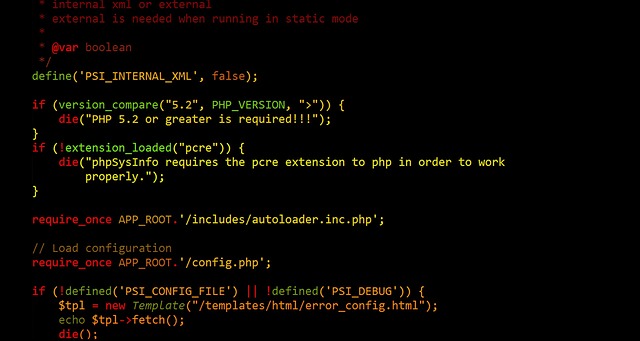The translation of the UK Code of Conduct and Ethics into other languages presents unique challenges due to cultural differences and linguistic nuances. It's crucial that any translation service engaged in this task has expert linguists who are not only fluent in both the source and target languages but also possess specialized knowledge in ethical documentation. These professionals must navigate complex cultural contexts, legal standards, and idiomatic expressions to ensure the translated text accurately conveys the original code's intent. Advanced translation technology can support human translators by offering suggestions from a comprehensive database of verified translations, enhancing accuracy. The goal is to produce a version of the UK Code of Conduct and Ethics that is both contextually meaningful in the target language and aligned with the ethical standards and legal framework specific to the UK. This process not only avoids mistranslations but also fosters a universal understanding of ethical practices, ensuring that multinational companies can effectively communicate and uphold their ethical standards globally.
Navigating the intricacies of ethical standards across diverse cultures necessitates meticulous attention to detail, particularly in translated codes of conduct. This article delves into the critical role of precise translations in upholding organizational integrity, focusing on the UK Code of Conduct and Ethics as a benchmark. We explore the challenges inherent in cross-language translation, the importance of leveraging professional translation services for legal documents, and the impact of mistranslation on an organization’s reputation. Key strategies for translating ethical guidelines accurately are highlighted, alongside the necessity of cultural adaptation to ensure clarity. With case studies illustrating both failures and successes in translated ethics, this article provides a comprehensive guide to selecting a reliable translation service provider, ensuring consistency across multilingual codes, and employing technology to maintain the original intent post-translation. It also addresses the legal and compliance implications of inaccurate translations, the importance of linguistic expertise, and strategies for verifying translated ethical standards documents. Building a robust framework for effective code translation and implementation is pivotal, ensuring that the UK Code of Conduct and Ethics is universally understood and adhered to, thereby fostering global trust in compliance practices.
- Understanding the Importance of Clear Translations in Codes of Conduct
- Overview of the UK Code of Conduct and Ethics
- The Role of Professional Translation Services in Legal Documentation
- Challenges in Translating Codes of Conduct Across Languages
- Key Considerations for Accurate Translation of Ethical Guidelines
- The Impact of Mistranslation on Organizational Integrity
- Best Practices for Translating Codes of Conduct from English to Other Languages
- The Necessity of Cultural Adaptation in Code Translation Services
- Case Studies: When Translation of Ethics Fails and Succeeds
- Selecting a Reliable UK Code of Conduct and Ethics Translation Service Provider
Understanding the Importance of Clear Translations in Codes of Conduct

When organizations with a global presence operate across different cultures and languages, it is imperative that their codes of conduct and ethics are accurately conveyed in each language to ensure compliance and understanding among all employees. The UK Code of Conduct and Ethics translation services play a pivotal role in this process, offering precise and clear translations that maintain the original intent and meaning. Misinterpretation due to poor translation can lead to legal issues, cultural misunderstandings, and operational inefficiencies. To safeguard against such outcomes, it is essential that these translations are handled by experts who specialize in both linguistic nuances and professional conduct standards. By leveraging the expertise of UK Code of Conduct and Ethics translation services, companies can ensure that their ethical guidelines are universally understood, thus fostering a culture of integrity and responsibility across all operations. This not only protects the company’s reputation but also ensures that ethical practices are consistently applied, regardless of geographical location. In an era where businesses are increasingly interconnected, the clarity and precision of translated codes of conduct are not just a courtesy but a necessity for maintaining operational integrity and legal compliance on a global scale.
Overview of the UK Code of Conduct and Ethics

The UK Code of Conduct and Ethics serves as a cornerstone for professionalism and integrity within various sectors, particularly in finance where it is mandated by law. This code outlines the principles and standards expected from individuals working in regulated industries, emphasizing the importance of honesty, integrity, and responsible behavior. It provides a framework for decision-making that aligns with public interest and the proper functioning of markets. For entities operating under this code, translating its tenets into different languages is not merely a matter of linguistic compatibility but a critical step in ensuring global teams understand and can adhere to these standards. Utilizing professional UK Code of Conduct and Ethics translation services is essential to convey the nuances and legal implications of the code accurately. These translation services offer expertise in capturing the essence and intent of the original text, ensuring that all translated materials are clear, precise, and maintain the integrity of the source document. Companies that engage these services can be confident that their international operations are guided by the same ethical standards as their UK counterparts, fostering trust and compliance across diverse cultural contexts.
The Role of Professional Translation Services in Legal Documentation

When legal documents such as the UK Code of Conduct and Ethics require translation, the stakes are high due to the critical nature of the content. Accuracy and fidelity to the original text are paramount, as misinterpretations or errors can lead to significant legal implications. Professional translation services specialize in navigating the complexities of language to ensure that the intent, meaning, and nuances of these documents are preserved across different linguistic barriers. These experts employ a rigorous process that includes a deep understanding of both the source and target languages, as well as familiarity with legal terminology and concepts. This expertise is crucial for producing translations that stand up to legal scrutiny and reflect the integrity of the original text. By leveraging the skills of seasoned translators who are often fluent in both the source and target languages and possess a background in law, these services can provide clear, precise, and legally sound translations of the UK Code of Conduct and Ethics, ensuring that all stakeholders have a reliable understanding of the content. This not only safeguards legal compliance but also upholds professional standards and ethics on an international scale. In doing so, professional translation services play a pivotal role in facilitating global communication and cooperation within the legal field.
Challenges in Translating Codes of Conduct Across Languages

Navigating the complexities of translating codes of conduct from one language to another presents unique challenges that necessitate expert attention, particularly when dealing with UK Code of Conduct and Ethics translation services. The linguistic nuances inherent in various languages mean that a direct word-for-word translation often falls short of capturing the original intent and context. For instance, concepts like ethical integrity or professional conduct may be deeply rooted in cultural norms and legal frameworks specific to the UK, which may not have direct equivalents in other languages or cultures. This can lead to misunderstandings or misinterpretations if not handled with precision.
Moreover, translation is not merely a linguistic endeavor but also a technical one that requires an understanding of the subject matter. Translators must be adept at converting ethical principles into terms and phrases that resonate within the target language’s cultural context while maintaining the original meaning’s integrity. This process involves careful consideration of legal requirements, idiomatic expressions, and the subtleties of moral philosophy. UK Code of Conduct and Ethics translation services that excel in this field leverage their expertise to ensure that translated codes are not only grammatically correct but also culturally appropriate and reflective of the ethical standards intended by the original document. This is crucial for multinational organizations operating across borders, as it ensures that all employees, regardless of their location, receive consistent guidance on professional conduct and ethical responsibilities.
Key Considerations for Accurate Translation of Ethical Guidelines

When translating ethical guidelines, such as those outlined in the UK Code of Conduct and Ethics, precision and cultural sensitivity are paramount to convey the intended meaning accurately. The first key consideration is understanding the source material deeply, including the context and nuances within which these guidelines operate. Translators must be adept at interpreting ethical principles across different languages while maintaining the original intent and tone. This is particularly important given that ethical considerations can vary significantly between cultures, and a literal translation may not capture the subtleties of what is considered ethical behavior in a given context.
The second consideration involves the translator’s proficiency not only in the target language but also in the specialized terminology used within legal and ethical frameworks. The UK Code of Conduct and Ethics translation services must employ experts who are fluent in both the source and target languages, with a comprehensive understanding of ethics and law. These specialists should be equipped with up-to-date knowledge of legal and ethical standards to ensure that translated guidelines meet international compliance requirements and are culturally relevant for the intended audience. By adhering to these considerations, translation services can provide organizations with accurate, reliable translations of ethical guidelines, facilitating global understanding and adherence to professional conduct standards.
The Impact of Mistranslation on Organizational Integrity

Mistranslation within organizational codes of conduct and ethics can have profound implications on an entity’s integrity and reputation. When the UK Code of Conduct and Ethics translation services fail to convey the original meaning accurately, it can lead to confusion among employees and stakeholders regarding expectations, policies, and ethical boundaries. This misalignment can result in operational oversights, legal complications, and a breakdown in trust, both internally and externally. The nuances of language are critical; for instance, what may be considered a minor semantic difference in one context could significantly alter the interpretation and application of a rule or principle. As such, organizations must invest in high-quality translation services that specialize in legal and ethical documents to ensure that the translated codes reflect the precise intent of the original text. This is not merely a matter of semantics but a crucial aspect of maintaining a strong ethical framework and upholding organizational integrity across diverse and global teams.
The repercussions of mistranslation extend beyond mere miscommunication; they can affect decision-making processes, compliance with regulations, and the overall moral standing of the organization. In the UK, where adherence to strict ethical standards is a cornerstone of business practice, the importance of accurate translations cannot be overstated. Utilizing professional UK Code of Conduct and Ethics translation services safeguards against potential misinterpretations that could otherwise undermine an organization’s ethical stance. It ensures that all members of the organization, regardless of language proficiency or cultural background, are on the same page, which is essential for consistent application of ethical standards and organizational success.
Best Practices for Translating Codes of Conduct from English to Other Languages

When translating codes of conduct from English to other languages, particularly in a professional context such as UK Code of Conduct and Ethics translation services provide, precision and cultural sensitivity are paramount. To achieve clarity and accuracy, translators should follow best practices that ensure the essence and intent of the original text are preserved. This involves not only a literal word-for-word translation but also an understanding of the cultural nuances and legal implications within each language. For instance, terms related to ethics and conduct have specific connotations that may vary significantly across languages and cultures.
To this end, UK Code of Conduct and Ethics translation services should employ expert linguists who are not only proficient in both the source and target languages but also knowledgeable about the subject matter. These professionals should work within specialized teams where collaboration is encouraged to review each component of the text for any ambiguity or local idiomatic expressions that could alter the meaning. Utilizing advanced translation technology, when appropriate, can further enhance the precision of the translated document by providing suggestions based on a vast database of previously verified translations. This synergy between human expertise and technological innovation is crucial in delivering a code of conduct that is both accurate and culturally relevant, thereby ensuring that all stakeholders have a clear understanding of the ethical standards and expectations set forth.
The Necessity of Cultural Adaptation in Code Translation Services

When businesses operate across different countries, their codes of conduct and ethics often require translation to be understood by a diverse audience. This process is more than mere linguistic conversion; it demands a nuanced understanding of cultural contexts. The UK Code of Conduct and Ethics translation services play a pivotal role in this regard, adapting the content to resonate with the values and norms of the target culture while maintaining the integrity of the original message. A successful translation takes into account the subtleties of local languages and the cultural nuances that may influence how a code of conduct is perceived and interpreted. This cultural adaptation ensures that ethical guidelines are not only linguistically accurate but also contextually meaningful, thereby fostering a shared understanding of ethical practices across different regions. Companies must rely on expert translation services to navigate this complex task, as mistranslations can lead to misunderstandings and potential legal or reputational issues. By employing UK Code of Conduct and Ethics translation services, organizations can bridge cultural divides, ensuring that their ethical standards are effectively communicated and adhered to in a global context. This not only demonstrates respect for local customs but also reinforces the company’s commitment to ethical principles worldwide.
Case Studies: When Translation of Ethics Fails and Succeeds

When translated codes of conduct and ethics fail to convey their original intent accurately, the consequences can be far-reaching, often leading to misunderstandings and misalignments with stakeholder expectations. A notable case study illustrating this is the rollout of a UK-based pharmaceutical company’s code of conduct in its Spanish subsidiary. The literal translation did not capture the nuances of the local business culture, resulting in compliance breaches and a loss of trust among employees and clients. This incident underscores the critical importance of cultural context and precise language in translations to maintain the integrity and effectiveness of ethical guidelines across different regions.
Conversely, when translation services are executed with finesse, as demonstrated by UK Code of Conduct and Ethics translation services, the outcome can be exemplary. A prime example is a tech startup that expanded into the German market. Their code of ethics, meticulously translated to reflect the values and legal standards of the new locale, not only passed local compliance checks but also resonated with the local workforce, fostering a culture of integrity and trust. This success story highlights the effectiveness of professional translation services in bridging cultural divides and ensuring that ethical standards are both understood and upheld in a globalized business environment.
Selecting a Reliable UK Code of Conduct and Ethics Translation Service Provider

When the need arises to translate a UK Code of Conduct and Ethics from English into another language, or vice versa, selecting a reliable translation service provider is paramount. The accuracy and cultural nuance of such translations are crucial for maintaining the integrity of the original message. A competent translation service should have native-speaking translators who specialize in legal and ethical documentation, ensuring that the translated text conveys not only the letter but also the spirit of the UK Code of Conduct and Ethics. These experts must possess a deep understanding of both the source and target languages, as well as the legal context in which these codes operate. Additionally, they should be adept at navigating cultural nuances that could otherwise distort the meaning or implication of the text.
In your pursuit for a reliable UK Code of Conduct and Ethics translation service provider, consider one with a proven track record in this niche field. Look for providers that offer certification and verification of translators’ qualifications, and those who can provide references or case studies demonstrating their expertise. Furthermore, the chosen service should employ advanced translation technologies to ensure consistency across documents and to streamline the translation process. This technological edge, combined with human expertise, will yield a translation that is both accurate and culturally relevant, ensuring that the UK Code of Conduct and Ethics is effectively communicated in the target language. It is advisable to engage with a few potential service providers to assess their capabilities and to confirm that they have a thorough grasp of the ethical standards and legal requirements specific to the UK context.
In concluding, the translation of the UK Code of Conduct and Ethics into other languages necessitates a meticulous approach that honors both the original text’s intent and the cultural nuances of the target language. The article has highlighted the critical nature of clarity in these translations, emphasizing the indispensable role of professional translation services to uphold organizational integrity and operational compliance. By adhering to best practices and incorporating cultural adaptation strategies, organizations can ensure that the ethical guidelines are not only understood but also respected across diverse cultures and languages. Selecting a reliable UK Code of Conduct and Ethics translation service provider is a strategic investment for any entity operating internationally, safeguarding their standards and values in a global context.



